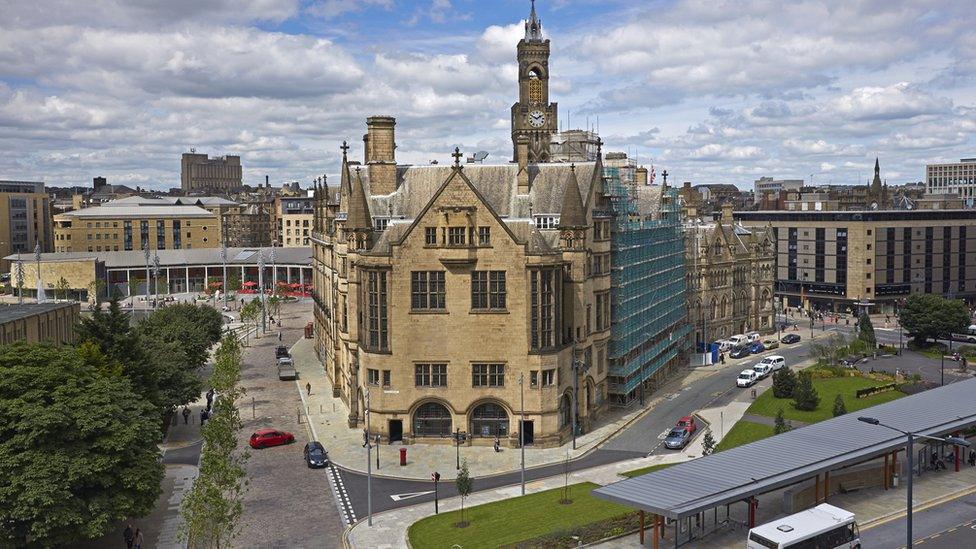Bradford air pollution impact on city's health - study
- Published
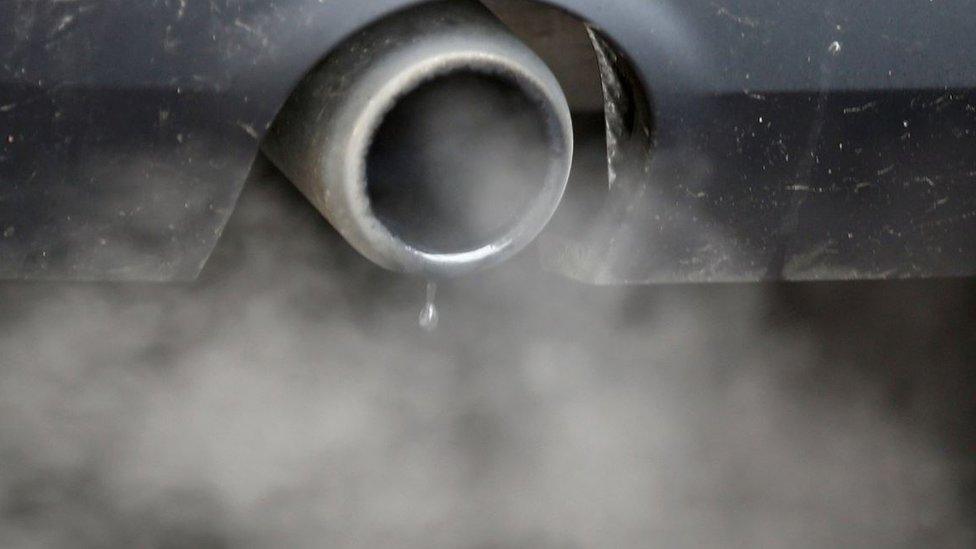
As many as one-in-two healthcare attendances for breathing difficulties in Bradford could be triggered by breaches in air pollution limits, research has claimed
Almost half of all visits to A&E for breathing difficulties in Bradford are linked to air pollution, a study has claimed.
Analysts said about a third of visits to GPs for respiratory problems, could also be linked to harmful emissions.
The study by Born in Bradford (BiB), analysed the data of more than 120,000 patients over four years.
It found air pollution was a factor for 35% of GP patients with breathing issues and 49% of those visiting A&E.
The report looked at 114,930 GP visits and 9,878 A&E attendances for respiratory problems, such as asthma and chronic obstructive pulmonary disease.
Prof Rosie McEachan, the senior author of the report, said the analysis showed it was "imperative to do something".
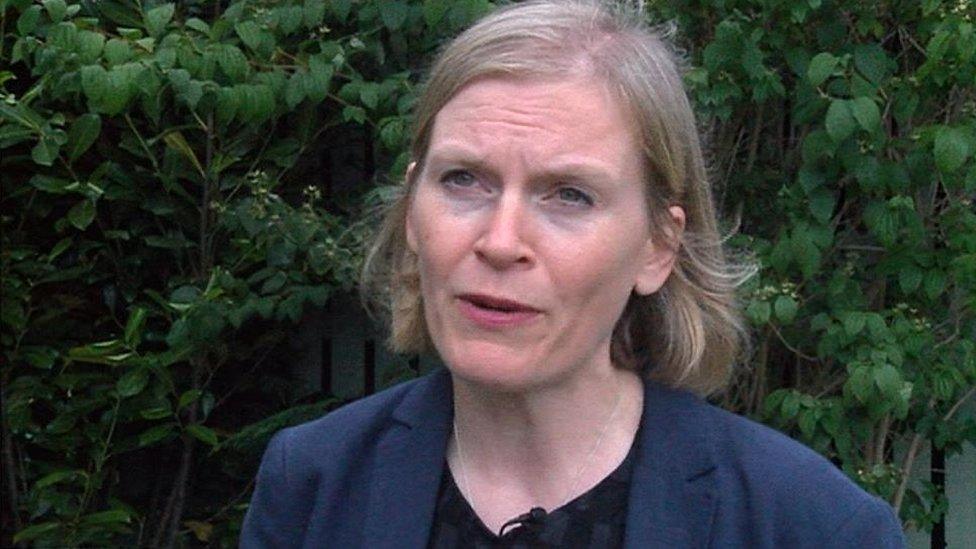
Prof Rosie McEachan, director of the Born in Bradford study, said when air pollution was high, there was an increase in demand at hospitals and GPs
Researchers said they had seen "a worrying trend" when the daily levels of nitrogen dioxide - which forms part of the discharge from car exhausts - soared above recommended levels set by the World Health Organisation.
Prof McEachan said the findings were "a cause for concern" for Bradford, as the air quality tracking had shown pollution levels "were exceeded on an average of 157 days per year".
The study, which used anonymous data covering the entire Bradford population, also claimed the impact of pungent gases on health care use was "far greater than previously reported".
Prof McEachan said previous research might have underestimated the impact of pollution on health care use, as it had mainly focused on what happens on the day of the high pollution.She said the new study meant "for the first time we were able to assess the impacts of pollution that may only present later".
Patients were still suffering from the impact of pollutants "up to 100 days after first being exposed to them" Prof McEachan said.
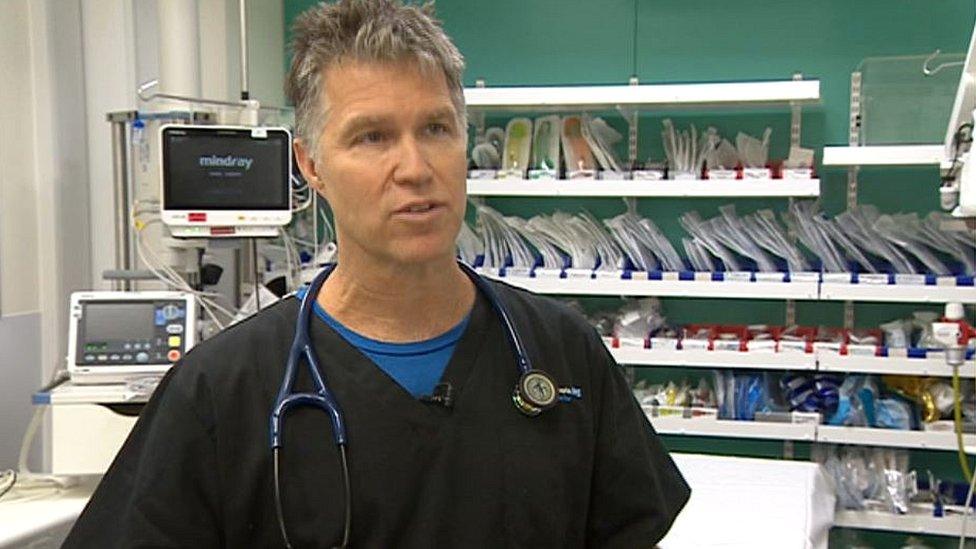
Dr Brad Wilson said the "great pressure" GP and A&E services were under, could be "reduced by tackling air pollution"
Dr Brad Wilson, from Bradford Teaching Hospitals NHS Trust, said respiratory problems were "very common in Bradford".
"We see a lot of them. It's a significant proportion of our workload: about 15% of our daily cases and higher in the winter," he said.
"So anything we can do to prevent those people coming, we should do and one of those things would be to reduce the carbon emissions."
Dr Wilson said air pollution was also responsible for worsening underlying health issues.
"The pollution makes respiratory conditions much worse and they present with an exacerbation of their chronic illness," he said.
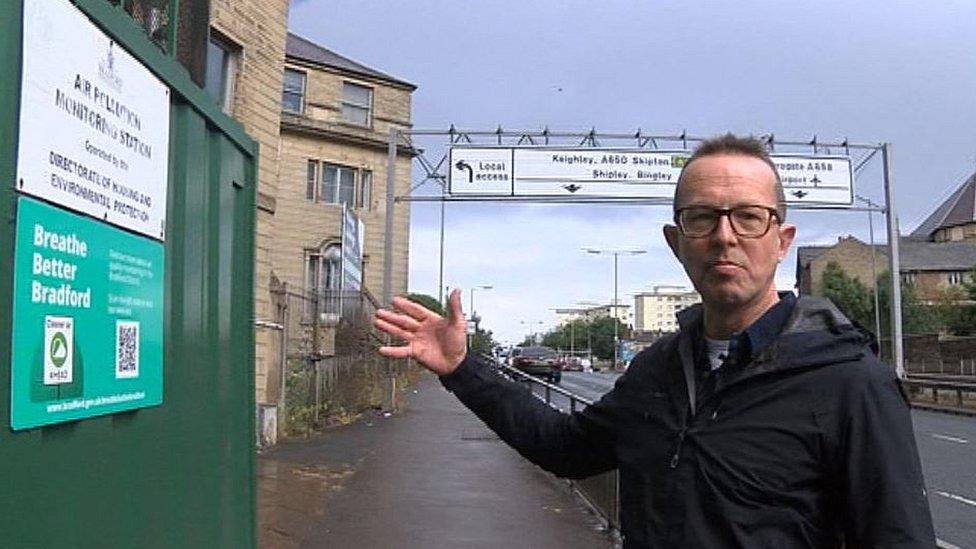
Money raised by Bradford's Clean air Zone could only be spent on projects to reduce emissions, the council said
Air quality in Bradford is closely monitored, after a clean-air zone (CAZ), was introduced in September 2022, with daily charges introduced for the most polluting commercial vehicles.
The CAZ, which aims to cut pollution and reduce its impact on people's health, generated almost £4.5m in charges and fines in its first six months.
Dr James Tate, from the Institute of Transport Studies at the University of Leeds, is leading the team evaluating the impact of the CAZ.
He said: "We're really hopeful that as well as the changes to traffic flow we will see an improvement to air quality.
"We'll see improvement at the most polluted hot-spots, but also right across Bradford and we have actually seen that in other cities."
The BiB research claimed the combined cost of pollution-related healthcare visits to the NHS, during the time of the Bradford study, was an estimated £2m.
Profr McEachan said about 500 people die in Bradford each year from respiratory disease.
"There are no safe levels of pollution," she added.

Follow BBC Yorkshire on Facebook, external, Twitter, external and Instagram, external. Send your story ideas to yorkslincs.news@bbc.co.uk or send video here.
Related topics
- Published30 May 2023
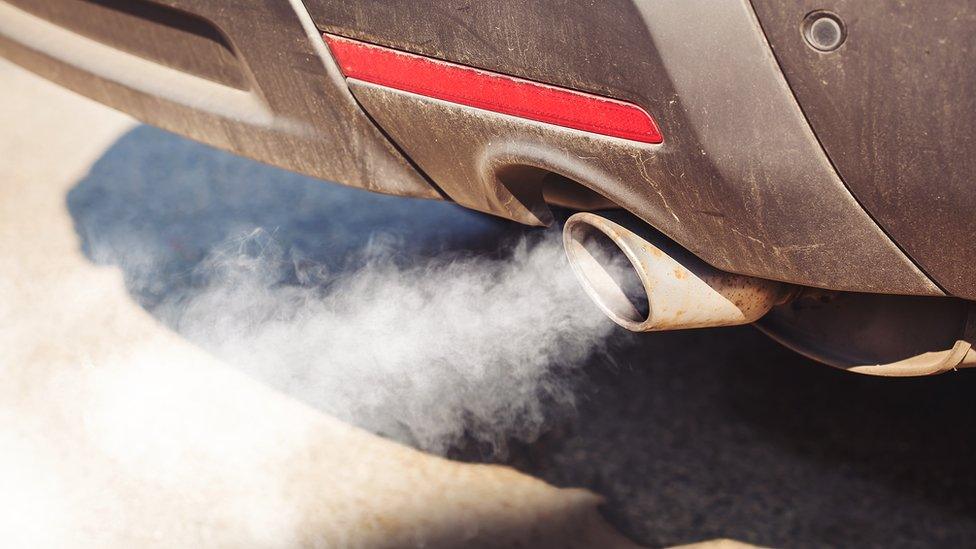
- Published28 April 2023
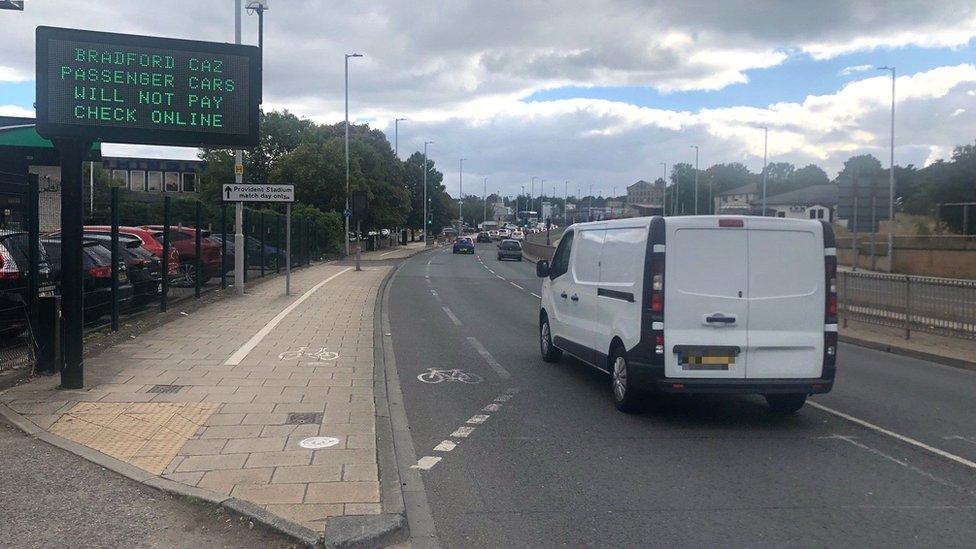
- Published1 September 2022
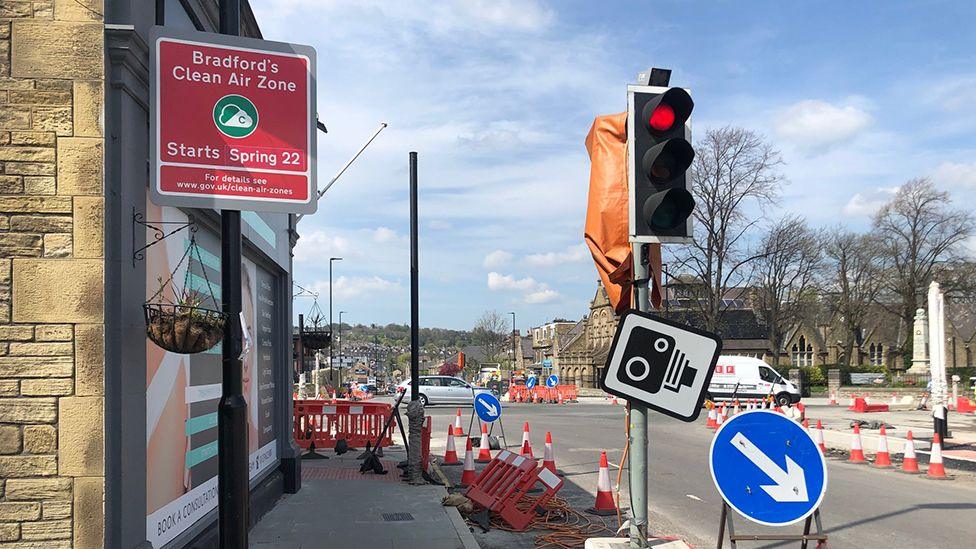
- Published27 March 2018
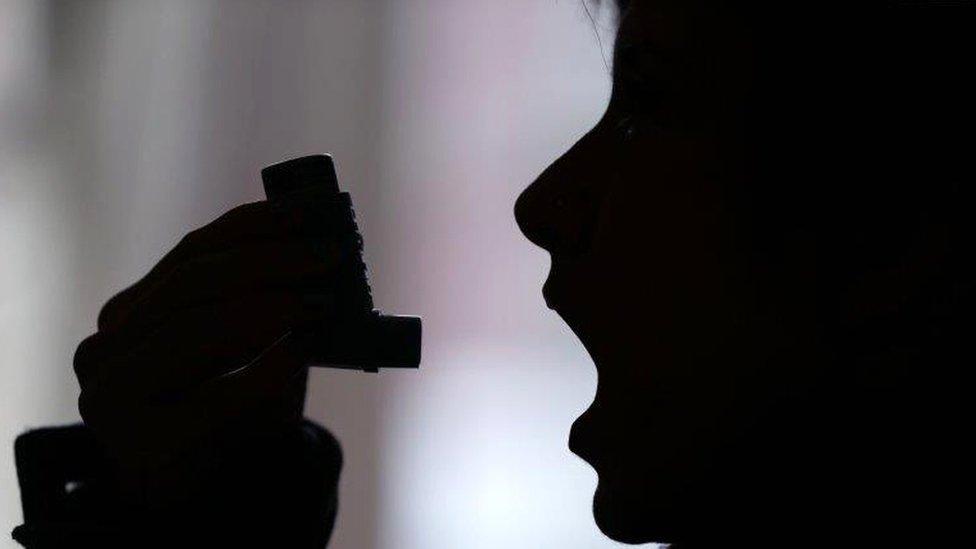
- Published22 December 2021
